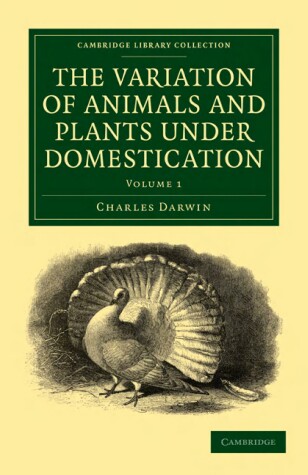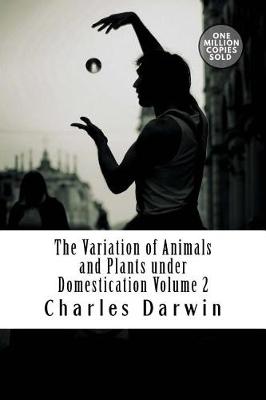8275322
2 primary works
Book 1
The Variation of Animals and Plants under Domestication: Volume 1
by Charles Darwin
Published 8 January 2010
Charles Darwin (1809–1882) first published this work in 1868 in two volumes. The book began as an expansion of the first two chapters of On the Origin of Species: 'Variation under Domestication' and 'Variation under Nature', and it developed into one of his largest works; Darwin referred to it as his 'big book'. Volume 1 deals with the variations introduced into species as a result of domestication, through changes in climate, diet, breeding and an absence of predators. He began with an examination of dogs and cats, comparing them with their wild counterparts, and moved on to investigate horses and asses; pigs, cattle, sheep, and goats; domestic rabbits; domestic pigeons; fowl; and finally cultivated plants. The work is a masterpiece of nineteenth-century scientific investigation; it is a key text in the development of Darwin's own thought and of the wider discipline of evolutionary biology.
Book 2
The Variation of Animals and Plants Under Domestication Volume 2
by Charles Darwin
Published 12 March 2010
Charles Darwin (1809-1882) first published this work in 1868 in two volumes. The book began as an expansion of the first two chapters of On the Origin of Species: 'Variation under Domestication' and 'Variation under Nature' and it developed into one of his largest works; Darwin referred to it as his 'big book'. In volume 2, concerned with how species inherit particular characteristics, Darwin first published his 'provisional hypothesis' of pangenesis. This theory of 'gemmules' was not met with much acceptance and today is not valuable as scientific explanation, but it was important in laying down the key questions that needed to be answered regarding the processes of genetic inheritance. Darwin also used volume 2 to challenge the theories of evolution by design, expounded by the botanist Asa Gray. Darwin's arguments were some of the very first in a long debate that remains hot today.

